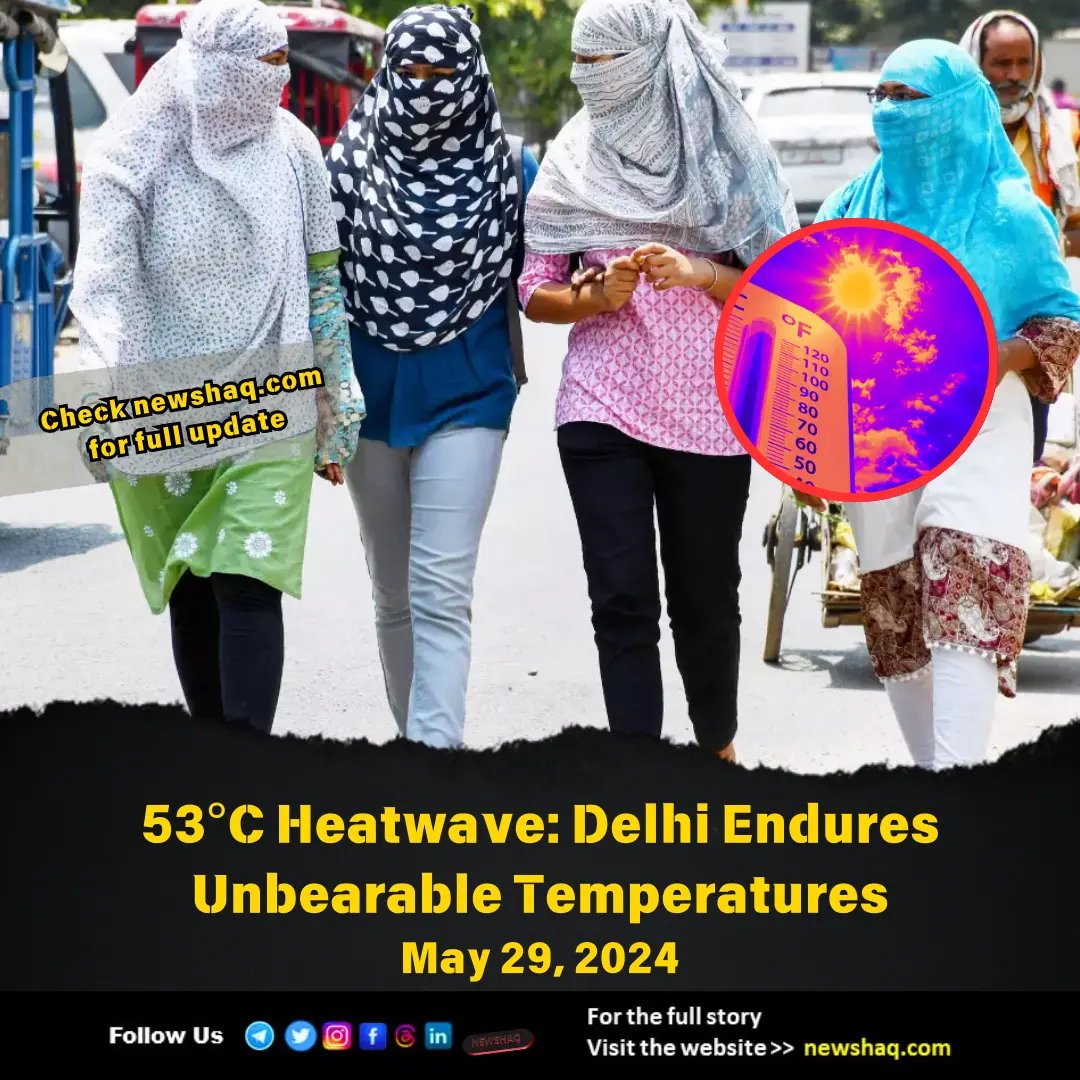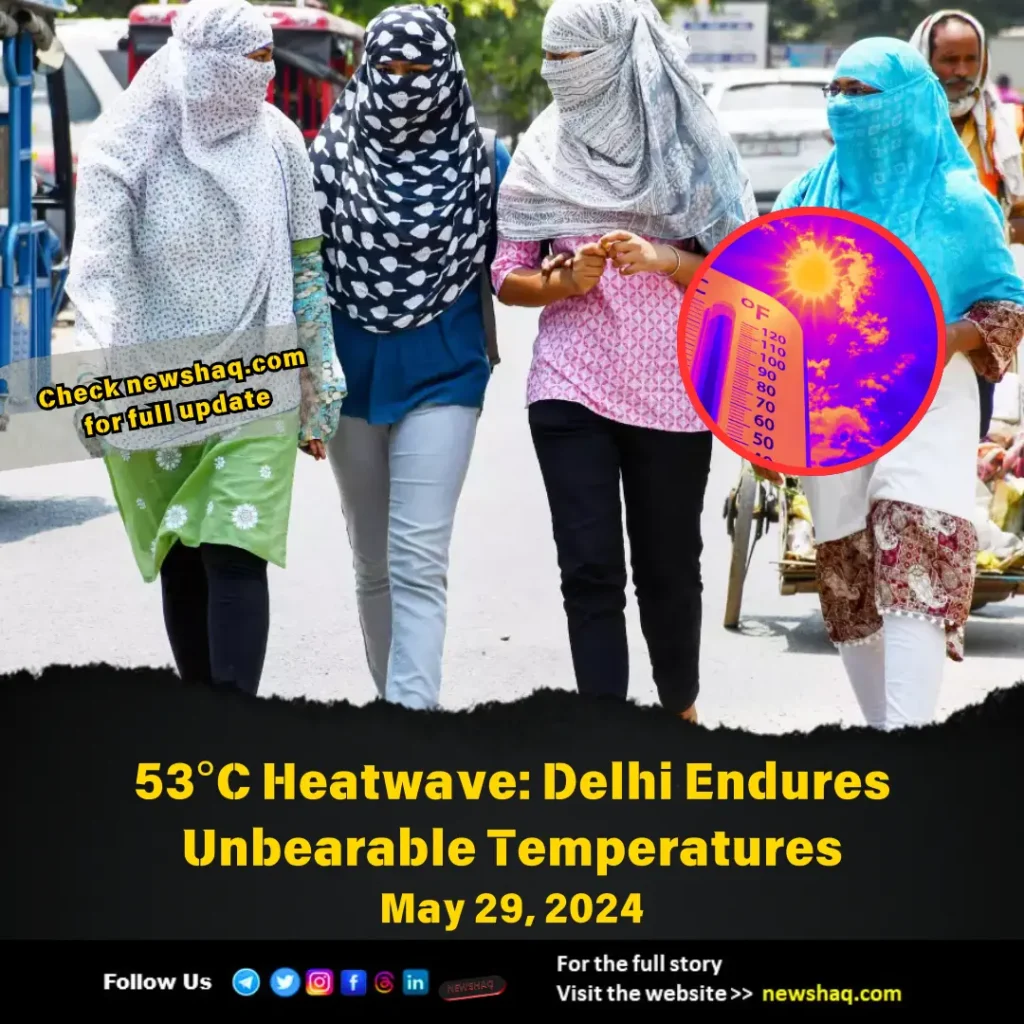
53°C Heatwave: Delhi Endures Unbearable Temperatures


Delhi Endures Record-Breaking Heatwave
Delhi is experiencing an intense heatwave, with temperatures reaching unprecedented highs. This extreme weather has had significant impacts on daily life, power consumption, and public health. Here’s a clear breakdown of the situation.
53°C Heatwave: Delhi Endures Unbearable Temperatures
- Temperature Peaks: On May 29, 2024, Delhi hit its highest temperature ever recorded at 52°C. The suburb of Mungeshpur reached 51.4°C, surpassing the previous record of 49.2°C from May 2022.
- Duration: Severe heatwave conditions have gripped Delhi since May 17 and are expected to ease from May 30.
Impact on People

- Power Demand: Delhi's electricity use surged to a record 8302 MW, breaking the earlier record of 8000 MW set on May 22.
- Water Rationing: Due to the heatwave, some areas now receive water only once a day. Others have no water supply, forcing residents to travel long distances to collect water.
- Public Measures: The Delhi government closed schools that were still open and advised people to avoid outdoor activities. Public places like parks and markets have seen fewer visitors, and the zoo has taken steps to protect animals from the heat.
Health and Safety Concerns
- Heat-Related Illnesses: Hospitals report a 10-15% increase in patients with heat-related issues like exhaustion, dehydration, and heat stroke. Special units are set up to treat these conditions. Cases include a delivery worker, Rohit Garg, who collapsed from heat stroke, and construction worker Jagan Das, who needed intravenous fluids for severe dehydration.
- Vulnerable Populations: Outdoor workers and low-income families are the hardest hit. They often lack basic amenities and safe working conditions, increasing their risk of dehydration and heat stroke. Meena Devi, a daily laborer, faces these challenges daily while trying to earn a living.
Weather Alerts and Further Impact
- Red Alert: The India Meteorological Department (IMD) issued a red alert for severe heatwave conditions in Delhi and surrounding regions, including Haryana, Punjab, Uttar Pradesh, and Rajasthan.
- Heatwave Spread: Other areas in North-West India, such as Churu in Rajasthan and Sirsa in Haryana, also recorded temperatures over 50°C.
Climate Change Context
- Increasing Extreme Heat: Experts say that the frequency and severity of heatwaves are increasing due to climate change. Since 1992, heatwaves have caused over 24,000 deaths in India. This trend threatens the country's progress in reducing poverty, improving health, and achieving economic growth.
Summary
Delhi’s ongoing heatwave underscores the need for better infrastructure and emergency plans to handle extreme weather. As temperatures rise, proactive steps are crucial to protect vulnerable people and ensure essential services continue. Addressing climate change is vital to mitigate the long-term effects of such extreme heat.
We have a dedicated team of three passionate individuals working tirelessly to bring you the news you need. Our team is led by Kaushalendra, the visionary owner and founder of Newshaq, who is committed to simplifying news delivery. Alongside Kaushalendra, we have two other team members who are equally dedicated to our mission of making news accessible and understandable for all.























Post Comment